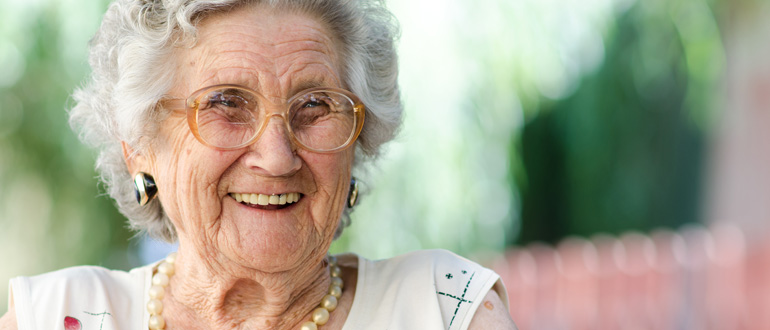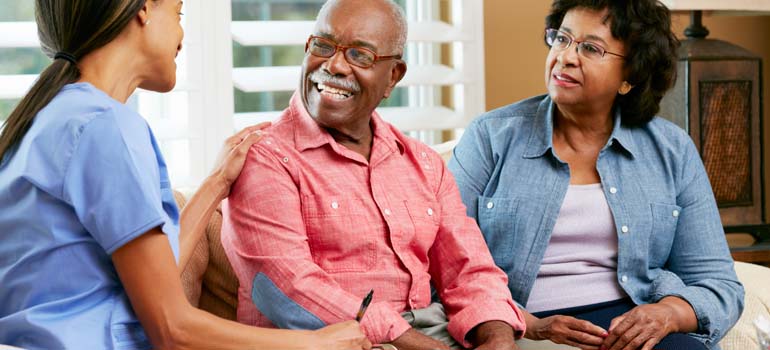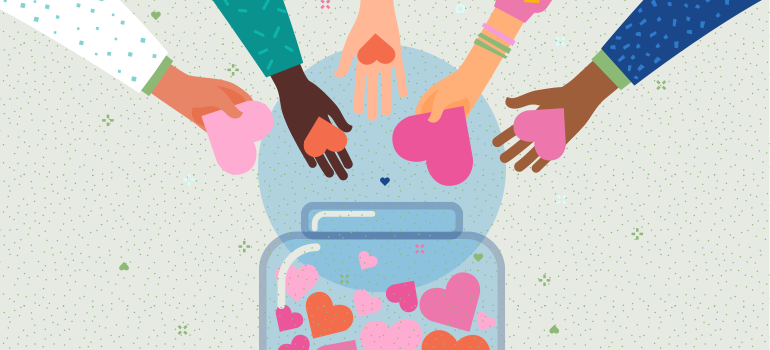Healthy, happy, and safe: Helping elderly people live their best lives

Aging affects all of us differently.
“Human beings are complex. Life is complex. There’s a long list of health troubles we might experience as we get older,” says Dr. Douglas Smucker, Medical Advisor for the Council on Aging of Southwestern Ohio.
But, as we age, the chance of experiencing a chronic condition—or “an ongoing condition that may not be able to be completely cured or reversed, something you have to cope with”—increases. The effects of chronic conditions are not just physical, Dr. Smucker says, but also mental and emotional.
Even common chronic conditions that are not “medically complex,” such as severe osteoarthritis in just one knee or hip, can have a profound effect on an elderly person. “It might make walking difficult, increase fall risk, and make you more isolated, which can make you more prone to depression.”
Dr. Smucker says the big picture for coping with aging and the chronic conditions that can accompany getting older is “being able to function the way you want to in order to maintain independence and dignity.”
Walk beside me
Physicians in geriatrics consider Activities of Daily Living (ADLs) and Instrumental Activities of Daily Living (IADLs) as they assess patients’ ongoing care needs and their ability to live independently. Examples of ADLs include “essential skills,” such as bathing and dressing, whereas IADLs are a bit more complex and involve activities such as money management and food preparation.
Dr. Smucker says that as those IADLs and ADLs begin to erode, Council on Aging can act as an excellent resource for seniors in the community coping with chronic health conditions. “Their real strength is bringing in a variety of social supports to assist with daily functioning and healthy living.
“[Representatives from Council on Aging] walk beside [their clients] like a well-informed family member helping to coordinate home care services. It’s such a wonderful support and resource for patients who want to remain independent and find ways to cope with chronic conditions to live as well as they can.”
The work Council on Aging does to help elderly individuals maintain their independence takes many forms, including (but not limited to) senior home care services such as personal care, housekeeping, meals, and transportation, Dr. Smucker says.
Fall prevention
For aging adults to maintain independence, it is critical that they can move freely and safely in their residence. People Working Cooperatively (PWC) provides remodeling and emergency services that help elderly people maintain a safe and comfortable environment as they age in place. Low-income elderly community members can benefit from this program free of charge.
PWC provides evidence-based fall-prevention education, which includes strength and balance exercises in addition to education about home modifications, at their Innovation Center.
Nina Creech, PWC’s Senior Vice President of Whole Home, says, “We make assessments in the home and provide a personalized overview of falls risk factors and ways to address them.”
PWC suggests assessment tools to determine how an elderly person’s current living situation aligns with their changing needs.
“It’s important to check your risk,” Creech says, “There are many steps you can take to prevent a fall, and PWC provides the professional services to make those changes.” After all, a fall could lead to a significant injury and act as a “big turning point” in an elderly individual’s ability to live independently, according to Dr. Smucker.
Happy, healthy, and safe
Dr. Smucker says that a few questions are central to caring for elders living at home: “What is the person coping with in terms of chronic conditions and doing daily tasks? Is that person healthy, happy, and safe in their current living situation?”
If a new setting, such as assisted living, might need to be considered at some point, the question becomes, “When have we reached the limit of how much help we can bring into the home to compensate for the difficulties they have with remaining safe and healthy each day?”
Health Care Access Now dispatches Community Health Workers (CHWs) to help aging adults continue to live their best lives. CHWs often connect clients with Council on Aging as their needs compound. Often needs compound when chronic health issues intensify.
Council on Aging “does [its] best to put as much assistance into someone’s home as [it] can.” A variety of support programs and resources can be accessed through its website.





